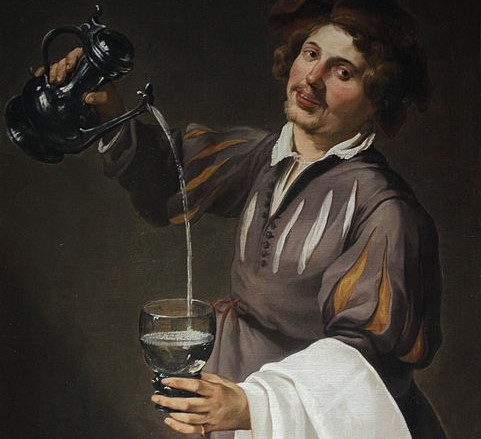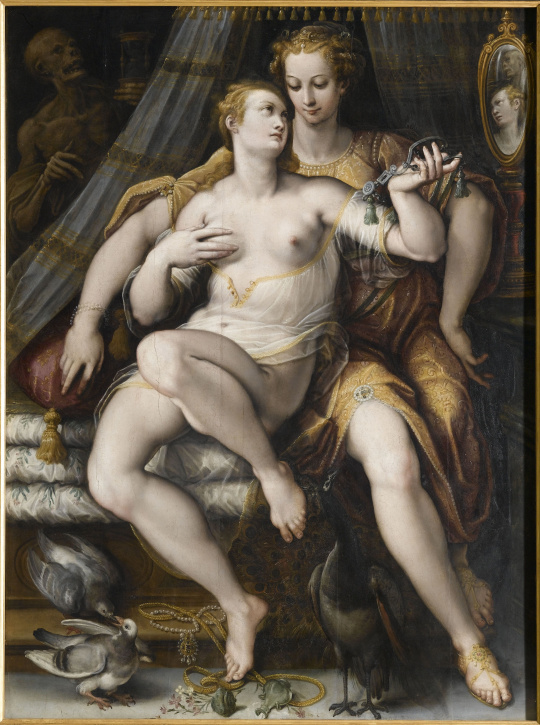When it comes to wine and gastronomy in France today, it's TINA*: either you're a fan of Gueuleton** and their 12-rib barbecue, with magnums of Clos Rougeard, or you're vegan and sip hazelnut milk with root vegetable broth. If you have the misfortune to drink just one glass of wine every lunchtime or so, you're a sick bastard, or worse, an alcoholic. If you're eating your rib steak with broccoli, you've been told to choose! Either it's broccoli, or it's rib, but not both together.
As it happens, I drink wine in moderation almost every day, I like meat, but I refuse to eat it every day and I choose it very carefully. I like vegetables, both au gratin and steamed. Junk food? Yes, I eat junk food too, although it's very rare. Although I sometimes indulge in excess, I'm what you'd call a “moderate” when it comes to wine and gastronomy. But in this day and age, I'm a stateless person, like Tom Hanks in The Terminal: I don't exist, or rather, woke paradox, I no longer have the right to exist. Ah… I confess to an equal passion for literature and sport... Impossible, indeed!

In truth, I feel I belong to an endangered species that, like all endangered species, deserves protection. My species belongs to the genus “moderate”. It groups together a number of varieties: nuance, complexity, doubt, finesse, beauty and so on. What these varieties have in common is the “wavering” gene, a well-balanced but fragile and unstable hereditary trait that requires the utmost caution when it comes to modifying it. Hastiness, certainty, ignorance, idleness or stupidity are its main threats. If these are ever brought together, the whole genus “moderate” is in jeopardy: nuance and finesse no longer have anything to do with beauty, while the right to doubt disappears in favor of communitarianism and beliefs; and by extension, society in favor of individual. On closer inspection, isn't this precisely what's happening? In the words of Ortega y Gasset: "No sabemos lo que pasa y esto es lo que pasa". In other words, to ask the question is basically to admit that it's already happening.
The profession of wine critic is in a state of upheaval. In addition to questions of integrity and competence, which need to be clarified once and for all, the legitimacy of judging has never been so hotly contested. As soon as the individual takes precedence, there is no longer any need for guidance - each person is his or her own guide. Why not, but at the cost of a trap-world, alienating and enslaving, depriving the individual of the ability to think and the aesthetic sense essential to emancipation, in which advertising and fashion reign supreme.
Two examples. The bottle, which has taken over from the wine. Exaggerating a little, the label and back label now receive as much attention, if not more, as the wine they are supposed to identify. The taste of the wine itself, which has never needed so much rhetoric, or in advertising parlance "storytelling", to justify its banality and approximations.

The consequences are harmful. The winegrower scatters, moving from one grape variety to another, from one color to another, from one container to another, from one experiment to another, trying as best he can to keep up with a fashion that, by its very nature, always moves too fast. The result, forever unfinished, meets with the complicit benevolence of the media who, caught in the eye of the advertising storm, abandon critical analysis for sponsored news. Soon we'll have Fox News or TalkTV for wine! Finally, the consumer, both actor and victim of fashion, eventually tires. Eternally disappointed, their excitement always unsatisfied, they live in the advertising intoxication of the label before sinking into the hangover of the tasting. In this game, wine risks losing everything. As a product of time, wine is powerless against the products of the moment, such as beer, spirits (in part) and non-alcoholic beverages.
Having said that, the consumer's intoxication is manifold, sometimes salutary, let's say Baudelairian, on condition that he is willing to get intoxicated with "wine, poetry or virtue, as you please", as the poet reminds us. Beauty can be intoxicating if you're willing to take the trouble to look for it. A little curiosity, effort and attention are often enough to marvel at a “successful wine”, and thereby contribute to the awakening of the senses and emancipated thought. For such a wine, wine guides should be an asylum, a refuge from the repeated onslaughts of fashion and advertising; not a museum honoring the vestiges of the past, but a library open to all, listing masterpieces in alphabetical order. (Today, it has to be said that most wine guides are more like advertising boards than libraries!)
Here are two further texts. The first develops what I have rather hastily called a "successful wine", and the second deals with our relationship with the bottle, which seems to have taken on a worrying importance. Enjoy your reading.
Olivier Borneuf
*TINA: "There Is No Alternative" is a political slogan commonly attributed to Margareth Thatcher, Prime Minister of the United Kingdom in the 1980s.
**Gueuleton: restaurant chain on old-world hedonism says Bloomberg
